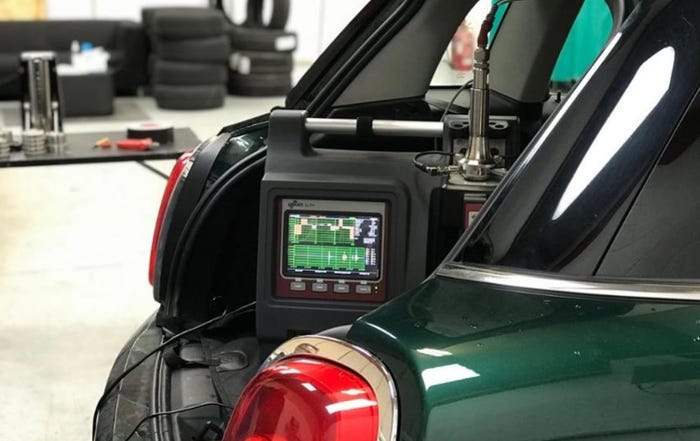Survey Says Mercedes Dealerships Treat Customers Best
The stereotypical pushy car salesman appears headed for extinction, according to mystery-shopping results.


Mercedes-Benz dealerships rank highest and Mitsubishi stores lowest in a new auto-retailing survey that used people posing as car shoppers to gauge and compare customer treatment.
Domestic brands improved the most, with Ford, Lincoln and Chevrolet dealerships scoring for the first time above the industry average in the fourth-annual Prospect Satisfaction Index by Pied Piper Management Co. LLC, an auto-retailing consultancy.
Meanwhile, the stereotypical pushy car salesman appears headed for extinction, survey findings seem to indicate.
More than 3,600 hired mystery shoppers went into dealerships nationwide and recorded how the sales staffers treated them. Pied Piper converted those results into by-brand metric measurements.
Overall, auto industry performance improved notably, with 25 of 34 auto brands scoring higher this year, compared to 2009. Luxury brands continue to lead in customer treatment. But non-premium brands show significant gains.
For example, when comparing the 2010 Ford shopping experience with that of 2007’s survey index, the latest one finds Ford dealership sales personnel.
52% more likely to discuss vehicle features unique from the competition.
29% more likely to introduce themselves.
65% more likely to mention the availability of different financing options.
Meanwhile, the stereotypical car-shopping experience of facing an overbearing salesperson happened less often (6% of the time) than the other extreme of encountering an inattentive, unhelpful salesperson (18% of the time).
The Internet largely is responsible for the decline of the aggressive salesman, says Pied Piper CEO Fran O’Hagan.
“The Internet has shifted the balance of power to customers who now know a lot about products and prices because of their online research,” he tells Ward’s.

<link rel=
">
“Smart sales people have figured out that there’s still a lot for them to do that involves being helpful, but not leading customers down a road determined by the salesperson.
“Successful brands and dealerships act as helpful enablers for today’s shoppers. At the most successful dealerships, the stereotype of the old-fashioned car salesperson no longer exists.”
On the other hand, sales people guilty of not interacting enough with customers tend to size up prospects to determine if they are “buy-today” types.
“Salespersons doing that tend to ignore shoppers who aren’t ready to buy,” O’Hagan says. “But that causes a lot of missed opportunities, because so many customers don’t buy on the first dealership visit.”
In nine of 10 cases, selling behavior that results in more closed deals “also makes customers the happiest,” he says. “It’s a win-win.”
Other survey findings:
Both Volvo and BMW sales people mentioned brand maintenance program and associated costs 80% of the time or more, while shoppers looking for a Scion, Mitsubishi or Dodge heard about it less than one-third of the time.
Lexus and Porsche sales staffers reviewed vehicle features and controls 95% of the time before leaving on a test drive, but BMW salespeople reviewed those only 74% of the time.
;At Land Rover, Smart or Mini dealerships, sales people nearly always handled the entire visit themselves and rarely introduced shoppers to dealership management. But shoppers met managers 40% of the time and more as part of an effort to close the sale at Suzuki, Volkswagen, Nissan, Toyota and Infiniti dealerships.
Staffers selling Nissan, Mazda, Infiniti, Mercedes, Toyota and VW were most likely to follow up with shoppers within 48 hours after the initial visit. Buick, Mitsubishi, Chevrolet and Acura sales people followed up with shoppers the least.
Six brands scored lower this year compared with how they did on Pied Piper’s 2009 PSI. Among them are last-place Mitsubishi and second-to-last Suzuki.
Those low rankings correlate to Mitsubishi Motors North America Inc. and American Suzuki Motor Corp. struggling for sales in the U.S., O’Hagan says.
“If you look at brands that do poorly in the PSI, they also do poorly in dealership throughput,” he says, referring to vehicle sales per store.
“Dealerships with poor throughputs have a tough time retaining talented sales people, and the ones that stay tend not to have their hearts in it.”
About the Author
You May Also Like





